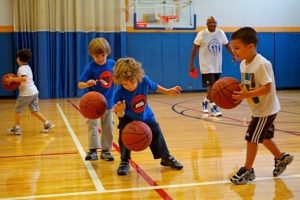Motor skills and school performance in children with daily physical education in school – a 9-year intervention study:
The aim of this study was to observe the long-term effects on motor skills and school performance of increased physical education. The students were from ages 7-9 and were studied until they were 16. They were from a Swedish school located six kilometers from a large city and were assigned to this school based on their permanent residence. Many different groups with changing variables were made among the chosen students. Mainly, a group that experienced physical activity daily, and a group of students that didn’t. The results of the study were not surprising.
The study suggests that daily physical activity and training in motor skills in school is a good way to benefit the students involved. It shows that not only do their motor skills improve, but their grades in school subjects and the proportion of students that qualify for higher studies (meaning they qualified for upper secondary school). This study supports others that suggest that daily physical activity leads to achievements in school.
Ericsson, I., & M. K., Karlsson. (2012). Motor Skills and School Performance in Children with Daily Physical Education in School – A 9-year Intervention Study. Scandinavian Journal of Medicine and Science in Sports, 24(2), 273-278. doi:10.1111/j.1600-0838.2012.01458.x

Effects of Extra School-based Physical Education on Overall Physical Fitness Development:
This experiment aimed to study if an additional four physical education lessons (each week) improved a student’s development in physical fitness. Also, it aimed to investigate if the same was true for students with lower levels of fitness.
The study was conducted with children in preschool to fourth grade and the next 2.5 years. These students went to ten different Danish public schools. Six of the schools had the extra physical education lessons while the remaining four had the normal amount. Around thirteen-hundred students were involved in the study.
The study suggests that extra physical education increased the development in fitness in the students, those with average fitness levels and those with lower than average fitness levels. The development of their fitness was measured by using a score system. The students began by taking six fitness tests, accumulating a starting score. Then, they were periodically tested again in the same tests and their improvement (or lack thereof) was noted. Students who had the extra classes each week generally improved in their scores at a greater rate than the students that didn’t have extra classes.
Rexen, C. T., Ersboll, A. K., Moller, N. C., Klakk, H., Wedderkopp, N., & Andersen, L. B. (2014). Effects of extra school-based physical education on overall physical fitness development. Scandinavian Journal of Medicine and Science in Sports, 25(5), 706-715. doi:10.1111/sms.12293
